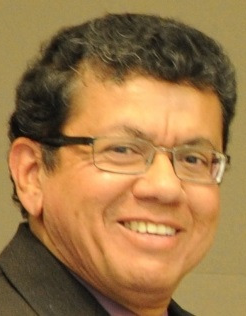Considerations for Prepayment Meters for Rural Electrification and the Urgent Need for Updated Technical Standards
This presentation discusses the results of a study conducted by MRIGlobal for an electric utility in Senegal. It illustrates the urgent need for updates and improvement in technical standards that would help rural electric utilities worldwide and provide a better choice and mechanism for selecting prepaid electricity meters. The session will present a general overview of the two types of prepayment architecture, the advantages and disadvantages for system integrators and utilities in using these metering systems (technical and cost), and suggest the updates needed in technical standards for achieving the much-desired interoperability at a significantly lower cost for the benefit of the entire industry.
Key takeaways:
- What are two general types of architecture for prepaid electricity meters currently available to rural electric utilities and what technical standards apply to the two types?
- What are the pros and cons of each type of metering architecture from the perspective of both the utility and the customer in terms of the following:
- Interoperability of meters from different brands b. Data communication capability
- Ease of implementation (for the utility)
- Ease of use and customer interface (actual customer perspective based on Senegal pilot project)
- Overall system costs (meter and vending systems)
- How prepayment standards for metering have not kept up with improvements in technology and the resulting problems faced by utilities in meter selection
- Suggested improvements in standards and what's coming down the pipeline based on information available from standards organizations.

Sayan Chakraborti
Program Director, Minigrids and Renewable Energy
MRIGlobal
Sayan Chakraborti is the Program Director for Minigrids and Renewable Energy at MRIGlobal specializing in program management of large energy and environmental projects, including the leadership of MRIGlobal's minigrid business area. He has bachelors and master's degrees in chemical engineering and an MBA. He is an accomplished program manager with 28+ years of experience in international projects having managed multi-contractor projects in Asia, the Middle East, and Africa including many projects related to energy access, energy efficiency, and energy conservation.
Mr. Chakraborti has led various teams in minigrid related projects in both East and West Africa over the past few years. Most recently he has been the Program Manager and Technical Lead for three comprehensive USTDA-funded feasibility studies for rural electrification working with project developers in Tanzania, Senegal, and Ghana. He has also been an invited expert speaker at various minigrid conferences and workshops in Africa and a technical specialist in microgrids for US reverse trade missions. Apart from minigrids, his other energy projects have included project management of large industrial battery installation and commissioning for smart grids, clean energy assessments for retrofit and beneficial reuse of existing infrastructure, providing policy advice for clean energy reports to government agencies, and GHG emissions reduction studies by co-firing biomass in coal fired power plants. Mr. Chakraborti has also supported the USAID Securing Water for Food program both as a technical and business model development expert advising innovators in many countries around the world including Uganda, Malawi, South Africa, UAE, Nepal, Netherlands, and India.
Program Director, Minigrids and Renewable Energy
MRIGlobal
Sayan Chakraborti is the Program Director for Minigrids and Renewable Energy at MRIGlobal specializing in program management of large energy and environmental projects, including the leadership of MRIGlobal's minigrid business area. He has bachelors and master's degrees in chemical engineering and an MBA. He is an accomplished program manager with 28+ years of experience in international projects having managed multi-contractor projects in Asia, the Middle East, and Africa including many projects related to energy access, energy efficiency, and energy conservation.
Mr. Chakraborti has led various teams in minigrid related projects in both East and West Africa over the past few years. Most recently he has been the Program Manager and Technical Lead for three comprehensive USTDA-funded feasibility studies for rural electrification working with project developers in Tanzania, Senegal, and Ghana. He has also been an invited expert speaker at various minigrid conferences and workshops in Africa and a technical specialist in microgrids for US reverse trade missions. Apart from minigrids, his other energy projects have included project management of large industrial battery installation and commissioning for smart grids, clean energy assessments for retrofit and beneficial reuse of existing infrastructure, providing policy advice for clean energy reports to government agencies, and GHG emissions reduction studies by co-firing biomass in coal fired power plants. Mr. Chakraborti has also supported the USAID Securing Water for Food program both as a technical and business model development expert advising innovators in many countries around the world including Uganda, Malawi, South Africa, UAE, Nepal, Netherlands, and India.